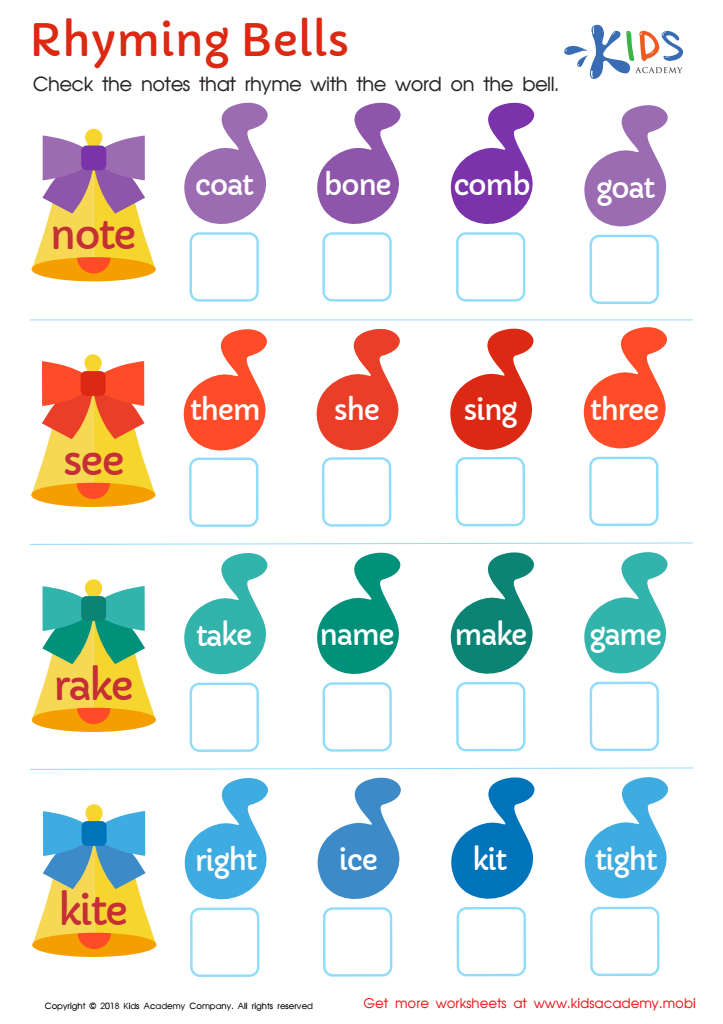Rhyming skills development Normal Rhyming Worksheets for 6-Year-Olds
4 filtered results
-
From - To
Enhance your child's rhyming skills with our engaging Normal Rhyming Worksheets designed specifically for 6-year-olds! These worksheets provide a fun and interactive way for children to explore the world of rhymes, helping to develop their phonemic awareness and early literacy skills. Through enjoyable activities such as matching words, completing rhymes, and creative exercises, kids will strengthen their ability to recognize and create rhyming patterns. Perfect for home or classroom use, these worksheets aid in building confidence and foundational language skills. Start your child’s rhyming journey today and watch them thrive with our specially curated educational resources!


Rhyming Words Rhyming Worksheet


Rhyming Bells Worksheet


First Words: Picture Rhymes Worksheet
Rhyming skills are a vital aspect of early literacy development, particularly for 6-year-olds. When parents and teachers prioritize rhyming, they are enhancing children's phonemic awareness—the ability to recognize and manipulate sounds in words—which is crucial for reading success. As children learn to identify and produce rhymed words, they develop essential skills in sound recognition and segmentation, laying a strong foundation for recognizing and decoding new words later on.
Furthermore, rhyming contributes to vocabulary expansion. Engaging with rhymes exposes children to new words, phrases, and rhythms, enriching their language and comprehension abilities. This playful exploration of sounds and meanings boosts creativity and expression, encouraging children to experiment with language.
Additionally, rhyming activities foster social interaction and bonding. Whether through songs, nursery rhymes, or interactive games, these activities create enjoyable learning experiences for both kids and caregivers. They enhance listening skills and memory by encouraging repetition and recall, which further solidifies literacy skills.
In conclusion, prioritizing rhyming skill development not only supports reading readiness but also enhances cognitive and social-emotional growth, making it a crucial focus for parents and educators of young learners.
 Assign to My Students
Assign to My Students













